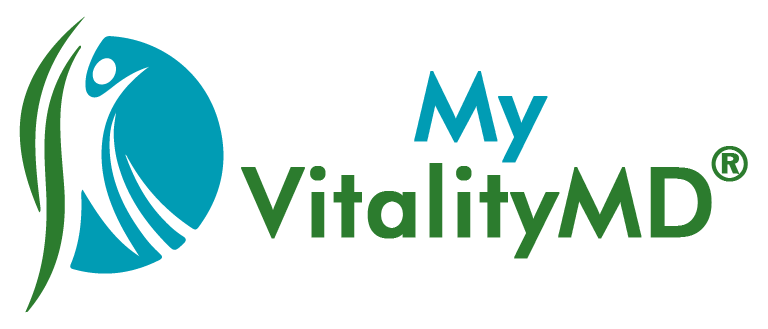Factor V Leiden & Prothrombin

Nhi Le, M.D. FAARM, ABAARM
Internal Medicine - Board Certified
Cosmetic Dermatology
Functional & Regenerative Medicine - Board Certified

What is factor V Leiden?
Factor V Leiden refers to a mutation in the gene that manufactures a protein called factor V which is involved in the process of blood coagulation. the factor V protein is also called coagulation factor V, and sometimes proaccelerin or labile factor.
Risks associated with factor V Leiden
-
People with factor V Leiden gene have an increased risk of developing a type of blood clot called a deep venous thrombosis (DVT).
-
The factor V protein functions as a cofactor that activates an enzyme called thrombin. Thrombin, in turn, cleaves fibrinogen to form fibrin, which functions to cross-link and form the dense meshwork that makes up the majority of a blood clot when activated.
-
Factor V Leiden thrombophilia also increases the risk that clots will break away from their original site and travel through the bloodstream. These clots can lodge in the lungs, where they are known as pulmonary emboli.
-
Although factor V Leiden thrombophilia increases the risk of blood clots, only about 10 percent of individuals with the factor V Leiden mutation ever develop abnormal clots.
-
Women with the factor V Leiden R506Q gene mutation (called R506Q) have an increased risk of clotting in pregnancy in the form of deep vein thrombosis and pulmonary embolism. They also may have a small increased risk of preeclampsia, may have a small increased risk of low birth weight babies, may have a small increased risk of miscarriage and stillbirth due to either clotting in the placenta or umbilical cord. Please note: Many women with this mutation go through one or multiple pregnancies with no difficulties, while others may have complications or develop clots during pregnancy.
-
If you have factor V Leiden and have developed blood clots, medications can lessen your risk of developing additional blood clots and help you avoid potentially serious complications.
Who should be tested?
-
Those who have had an unexplained blood clot (thrombotic episode), especially under the age of 50.
-
Those who have recurrent DVT/VTE (venous thromboembolism) episodes.
-
Those who have a strong family history of thrombosis.
-
Women considering pregnancy.
What is Prothrombin?
Prothrombin is a protein that causes blood to coagulate and form blood clots. A genetic mutation (called G20210A) in the production of this protein is a risk factor for thrombosis (blood clots) including deep venous thrombosis (DVT). This mutation in the gene encoding the clotting factor prothrombin is found in about 1 in 50 persons in the US. It raises the risk of thrombosis significantly for both males and females in all age groups. The Prothrombin G20210A mutation increases circulating prothrombin levels. This appears to create a hypercoagulable state.
Risks associated with Prothrombin
-
This gene provides instructions for making a protein called prothrombin (also called coagulation factor II). Coagulation factors are essential proteins for normal blood clotting. After an injury, clots protect the body by sealing off damaged blood vessels, preventing additional blood loss.
-
This mutation causes the gene to be overactive and leads to the excess production of prothrombin, which may lead to high rates of blood clot formation.
-
People who have prothrombin mutation G20210A have a 2-to-3 fold increase in the risk of DVT (Deep Vein Thrombosis). Persons who have this mutation plus the factor V Leiden mutation have a 10-to-20 fold increase in thrombotic risk.
-
Other factors also increase the risk of blood clots in people with prothrombin thrombophilia (a disorder that causes over-coagulation of the blood). These factors include increasing age, obesity, trauma, surgery, smoking, the use of oral contraceptives (birth control pills) or hormone replacement therapy, and pregnancy.
Who should be tested?
-
Those who have had a blood clot in one of the deep veins of the body (also called deep vein thrombosis or DVT)
-
Those who have have a blood clot that has traveled to the lung (called a pulmonary embolism or PE)
-
Those who have had a blood clot in an unusual site (such as the mesenteric or cerebral sinus vein).
-
Those who have suffered a heart attack or stroke at a young age
-
Those who have a history of recurrent pregnancy loss or stillbirth
To learn more contact the Fountain of Youth Medical Spa at 360-576-9100 or visit http://www.fountainmedicalspa.com for a consultation.
